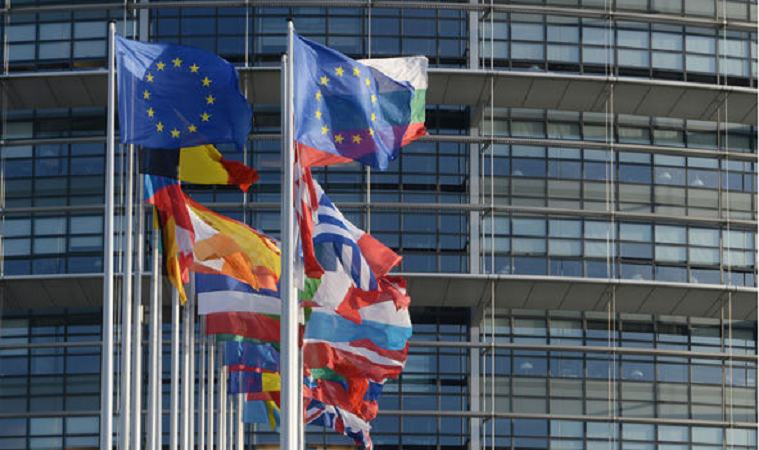
Apple and Meta have become the first companies to be fined under the European Union’s Digital Markets Act (DMA), in a landmark ruling that has reignited transatlantic tensions and drawn renewed accusations of political retaliation cloaked in antitrust enforcement.
The European Commission on Tuesday announced that Apple would pay a €500 million (approximately $570 million) fine for violating the DMA’s rules through its App Store restrictions, while Meta faces a €200 million (about $230 million) penalty over its controversial ‘pay or consent’ advertising model on Facebook and Instagram.
The Commission said both companies have 60 days to comply or face ongoing penalties that could significantly escalate. Apple and Meta have both indicated they will appeal the decisions, with Apple condemning the ruling as “unfair” and “dangerous for user privacy,” and Meta accusing the Commission of imposing what amounts to a “multi-billion-dollar tariff” on American companies.
Register for Tekedia Mini-MBA edition 19 (Feb 9 – May 2, 2026).
Register for Tekedia AI in Business Masterclass.
Join Tekedia Capital Syndicate and co-invest in great global startups.
Register for Tekedia AI Lab.
But beyond the legal wrangling and corporate protests, the fines are being interpreted by some analysts and observers as a deeper political move — a form of economic retaliation from the EU, years in the making, in response to former President Donald Trump’s tariffs on European goods.
Europe’s Long-Memory Politics and the Big Tech Bullseye
The EU has long signaled it would not stand idle in the face of what it views as protectionist measures from Washington. When the Trump administration imposed sweeping tariffs on European steel, aluminum, and other goods during his first term, European officials publicly vowed to respond not just through direct countermeasures, but by stepping up enforcement against dominant American firms operating in Europe. Brussels’ regulatory focus turned sharply toward Big Tech, with repeated threats and formal investigations into Apple, Meta, Google, and Amazon following closely.
In essence, critics of the Commission’s latest moves argue the fines are more than legal punishments — they’re political signals aimed at Washington, particularly at Trump’s administration, which has found common cause with CEOs of Silicon Valley’s most powerful firms. Trump’s support for Apple and Meta, as well as his vocal disdain for the EU’s “anti-American” tech policies, has only deepened this perception.
Inside the Penalties
Apple was found guilty of blocking app developers from informing users about alternative payment methods or linking to external websites where subscriptions and services could be purchased at lower costs — a practice known as “anti-steering.” The Commission said this behavior “undermined user choice” and limited fair competition, directly contravening the DMA, which came into force in May 2023 to curtail the monopolistic tendencies of so-called “gatekeeper” companies.
Apple, however, insists its measures are grounded in user protection. “We have spent hundreds of thousands of engineering hours and made dozens of changes to comply with this law,” said Apple spokesperson Emma Wilson. “The Commission continues to move the goalposts… We will appeal and continue engaging in service of our European customers.”
Meta, meanwhile, was fined for offering EU users only two options on Facebook and Instagram: pay for an ad-free experience, or consent to tracking and data harvesting to continue using the platform for free. The Commission determined that this “take-it-or-leave-it” model violates the DMA’s requirement for real, meaningful user choice in how their data is processed.
Meta’s top policy official, Joel Kaplan, fired back. “The Commission forcing us to change our business model effectively imposes a multi-billion-dollar tariff on Meta while requiring us to offer an inferior service,” he said. “This isn’t just about a fine. It’s about hurting American companies under the guise of fairness.”
Mounting Frustration in Washington
Washington has taken note. President Trump, who has previously described the EU’s antitrust crusade as “economic warfare,” has reportedly raised the issue in private discussions with European leaders. American tech lobbyists have also warned that the DMA and its enforcement mechanisms — risk becoming a de facto revenue generator for the EU at the expense of Silicon Valley.
Last year, the Financial Times reported that the European Commission was weighing a shift in tone — softening its aggressive approach amid pressure from US officials. But the fines issued this week suggest Brussels has instead chosen to double down on enforcement, even as concerns about transatlantic trade tensions escalate.
The maximum penalties under the DMA are steep: up to 10 percent of a company’s global turnover for a first offense, and 20 percent for repeat violations. For Apple, that could translate to more than $39 billion, and for Meta, around $16 billion. Though the fines announced on Tuesday are well below these thresholds, the message is unmistakable.
A Broader Crackdown Looms
The Commission is not stopping with Apple and Meta. Alphabet, the parent company of Google, is currently under investigation for allegedly favoring its own services in search results and employing similar “anti-steering” measures within its Google Play app store. Amazon and Microsoft, also designated as gatekeepers under the DMA, are expected to face fresh scrutiny as enforcement efforts expand.
While Apple and Meta prepare their appeals, and Brussels readies more enforcement action, the fight over the future of the internet, and who controls it, has become entangled with deeper geopolitical currents.
At the heart of the battle is a question that now extends far beyond app stores and advertising models: who writes the rules for the digital economy — Silicon Valley or Brussels? For Europe’s regulators, the answer is increasingly clear. For US tech giants and their most powerful backer in the White House, the verdict is one they are determined to contest.



